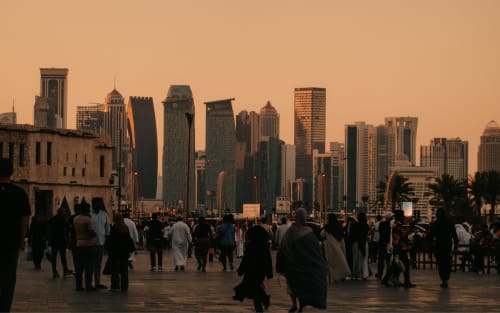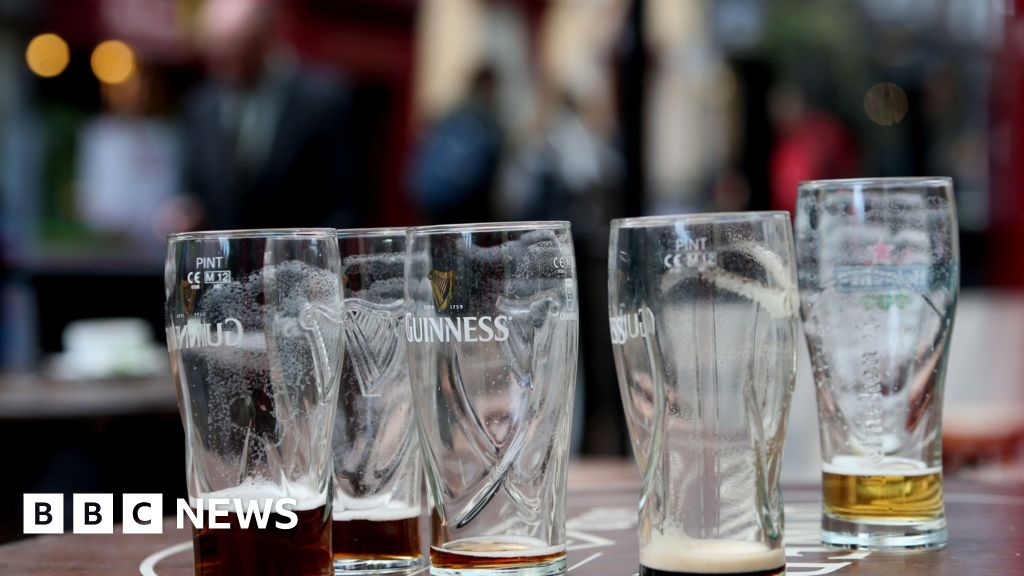Introduction
Heart failure (HF) is a multifaceted clinical syndrome marked by the heart’s inability to adequately pump or fill with blood to satisfy the body’s metabolic requirements.1 Physiologically, HF can manifest as either insufficient…

Heart failure (HF) is a multifaceted clinical syndrome marked by the heart’s inability to adequately pump or fill with blood to satisfy the body’s metabolic requirements.1 Physiologically, HF can manifest as either insufficient…

Powerhoof’s The Drifter took home Game of the Year at the Australian Game Developer Awards 2025, as well as Excellence in Art, Excellence in Narrative, and Excellence in Sound Design.
The point-and-click adventure game was…

Between 2019 and 2025Q2, the European chemical sector’s output declined significantly. It has contracted by 30% in the UK, 18% in Germany, 12% in France, and 7% in Belgium. Structural pressures—chiefly high energy and carbon costs alongside regulatory and permitting burdens—are undermining the sector’s viability.
Falling output levels and lower profitability is causing European chemical firms to cut their investment relative to their global competitors. Between 2019 and 2024, the average annual growth in European chemical firms’ investment spending was half the rate of their US counterparts (1.5% versus 3.0%). This trend is projected to continue over the next decade. This will further adversely impact the sector’s competitiveness.
Emissions data suggest that, if European chemicals production is replaced by imports from China and the US, total carbon emissions will rise. Chinese and US chemical industries emit around threefold and twofold more carbon for the same volume of output, respectively, than those in Europe. The greater distances needed to transport the imports will also add to the greenhouse gas emissions.
European policymakers face a critical decision: act decisively now to safeguard this vital strategic industry or risk its irreversible decline.

In “Boots,” a new miniseries set in 1990, Miles Heizer plays Cameron Cope, a scrawny, bullied gay teenager who is out only to his best (and only) friend, Ray (Liam Oh). Ray, who is joining the Marines to make his disciplinarian but not…

Developing Asia reached a 98% access rate in 2024. India and Indonesia now have universal access, leaving most of the remaining gap in Pakistan, Afghanistan, Mongolia, Myanmar, and the Democratic People’s Republic of Korea, which together account for 83% of the region’s population still without electricity. Progress has stalled since 2021, with four of the five countries showing slower progress than before the pandemic.
Latin America is close to universal access, with 98% of the population connected in 2024. But the last few percentage points are proving difficult. Remote areas such as the Andean Highlands and the Amazon remain underserved, and at the current pace, it could take 15 years to close the gap. Honduras and Haiti face the largest challenges. In Haiti, about half the population still lacks electricity, and progress in 2024 was 56% below the 2015–2019 average.
Sub-Saharan Africa accounts for eight out of ten people globally without electricity. The number of people lacking access grew between 2020 and 2022 but has since begun to fall, though progress is concentrated in a handful of countries such as Côte d’Ivoire, Kenya, and Mozambique. In 2024, regional progress remained below pre-pandemic levels, with 27 countries still lagging their 2015–2019 averages. Early 2025 estimates suggest a modest acceleration, supported by record solar PV imports from China and new electrification policies in key countries.

EN |
Art Basel Qatar announces 87 galleries for inaugural edition in February 2026
Art Basel Qatar will feature 84 artist presentations by 87 galleries when the fair debuts in Doha next February. Presented in partnership with Qatar Sports…

 PA Media
PA MediaA new set of stamps is being issued to mark 90 years since classic board game Monopoly launched in the UK.
John Waddington Limited of Leeds secured the European licence to make the…

TOYOTA GAZOO Racing World Rally Team driver Kalle Rovanperä has announced his decision to move on from rallying at the end of the 2025 season and pursue an exciting new challenge in motorsport.
The two-time FIA World Rally Champion will…

Pubs and bars in England and Wales could see extended opening hours as the government launches a fast-track a review on “outdated” licensing rules.
The plans could make it easier for venues to serve food outside and host more live music, in a bid to “remove unnecessary barriers”.
Pub landlords and local communities will be able to have their say in a four-week call for evidence. Prime Minister Sir Keir Starmer said the review was about “cutting red tape” and “boosting footfall” to support the UK’s economic growth.
But critics have warned relaxing rules around alcohol would lead to more antisocial behaviour.
Sir Keir said “pubs and bars are the beating heart of our communities”, and added that the government was “backing them to thrive”.
“When our locals do well, our economy does too,” he said.
The call for evidence will focus on nine key recommendations from the Government’s Licensing Taskforce, with particular emphasis on streamlining on-trade alcohol licensing for hospitality venues.
It said it plans to cut the cost of licensing, extend business rates relief and cut alcohol duty on draught pints.
Nick Mackenzie, co-chair of the Licensing Taskforce and chief executive at pub giant Greene King, said updating the licensing system was a “vital step” towards reducing the challenges of running a hospitality business.
“Pubs are faced with continued rising costs, placing them under enormous pressures which is why the Government must continue to back the sector, including critical reforms on business rates which would unlock opportunities for pubs to invest and help drive economic growth,” he said.
Dr Richard Piper, the chief executive of the charity Alcohol Change UK told the Guardian the proposed reforms would be a “charter for chaos” without support from local authorities and health experts.
He said permitting vendors to sell alcohol later into the evening would “inevitably mean more victims of crime, including domestic violence, more antisocial behaviour and disturbance, more police time spent dealing with drink-fuelled incidents and both ambulance and A&E staff having to deal with even more people who have come to harm as a result of alcohol”.
Pubs in England and Wales do not have universal fixed opening hours under current licensing rules. Instead, local authorities grant licenses with specific operating hours which pubs must follow.
The number of pubs in the UK has steadily decreased every year since 2000, according to the British Beer and Pub Association. The association estimates that 378 pubs would close in 2025 across England, Wales and Scotland, amounting to more than 5,600 direct job losses.

Sleep is characterized by rhythmic oscillations that play essential roles in neural plasticity and cognition. Among these, sleep spindles—~12 Hz rhythmic bursts during NREM sleep—originate in thalamocortical networks and…